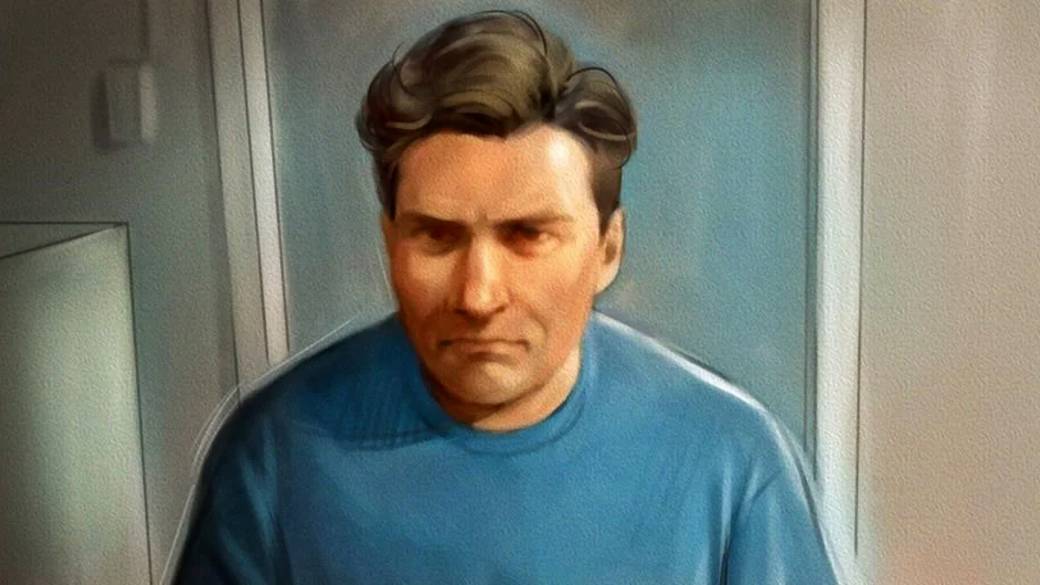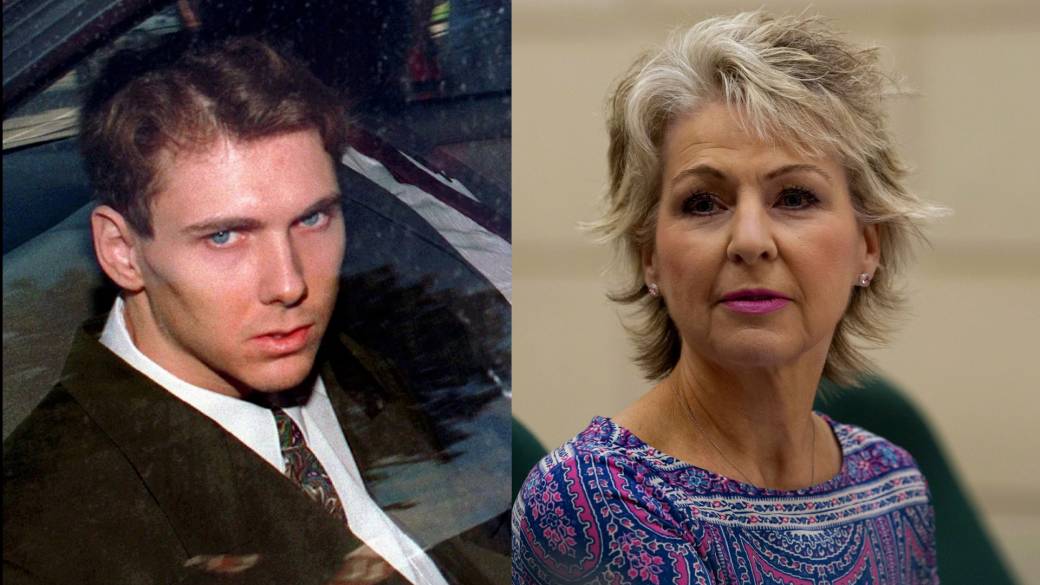Childhood friends of one of Paul Bernardo’s murder victims say news of the convicted killer’s transfer to a medium-security prison forced them to relive the trauma they first experienced decades ago, arguing the justice system doesn’t properly take victims’ rights and experiences into consideration.
Tennille Chwalczuk, Laura Murray and Marcia Penner, who were friends with Kristen French, appeared before the House of Commons public safety and national security committee Wednesday about the transfer of inmates and the rights of victims of crime.
They said hearing news about Bernardo’s transfer returned them to the days in 1992 when French was missing and ultimately found dead, causing them to experience those same emotions all over again. Those feelings were compounded without proper warning the transfer had been approved, they added, only getting notice shortly before the transfer occurred.
“It brings us right back to that same moment,” Murray said.
Chwalczuk, who became best friends with French at the age of four, told MPs she was filled with a mix of “absolute anguish,” tears and rage when she suddenly learned without warning about Bernardo’s transfer.
“There was no time to process, to react, to refute,” Chwalczuk said.
“One of the many concerns I have is this: are the victims’ rights respected at all in these decisions?”
The witnesses also said it’s unfair to put the onus on victims and their families to advocate for their positions through victim impact statements when decisions on transfers and parole come up, a process that further forces them to relive their trauma. Victims are often not informed they have that right in the first place, they added, noting they weren’t aware in the case of Bernardo’s transfer,
“The criminal has more rights than the victim,” Penner said.
“We’re having this conversation … because we have to fight to have this monster put back where he belongs. Fair? Absolutely not fair. Fair that after 31 years we are still having to relive this and fight for our best friend? Not fair. The system, there is something seriously wrong.”

All three women told MPs that while they oppose the prison system’s decision to move Bernardo in the first place, they would have benefited from having access to mental health resources, as well as extra notice to allow for more time to process the information.
Benjamin Roebuck, the federal ombudsperson for victims of crime who also appeared at the committee Wednesday, said the government spends on average 20 cents on responding to victims’ complaints for every dollar spent on offenders’ complaints.
“The way that we are treating victims of crime in Canada isn’t just, it’s not kind, it’s not compassionate. It’s not respectful,” Roebuck said.
He told the committee that his office has been raising concerns about prison transfers since 2010, and that he hopes the Bernardo decision becomes a “turning point.”
More on Canada
“What we’ve recommended is that there will not be any transfers where people haven’t been notified at the time of a pending transfer,” Roebuck said. Victims should be made aware that they are allowed to submit feedback and express concerns, he added.
Tim Danson, the lawyer who represents the families of French and Leslie Mahaffy, another of Bernardo’s victims, was also supposed to appear at the committee Wednesday but did not receive a headset required for his virtual appearance in time. His testimony will be rescheduled, the committee said.
The committee is is studying the rights of victims of crime, reclassification and transfer of federal offenders in the wake of the fallout over Bernardo’s transfer to a medium-security prison earlier this year.
Bernardo, 59, has been serving a life sentence for the kidnappings, tortures and murders of teenagers French and Mahaffy in the early 1990s.
He and his then-wife Karla Homolka also killed her younger sister, Tammy Homolka. Bernardo had been living out his sentence in maximum-security prisons until this year.
Bernardo’s transfer to the medium-security prison in Quebec set off a firestorm across the country and engulfed the Liberal government in controversy.

Part of the controversy surrounded the notification of the victims’ families; Danson previously told Global News he only learned about this transfer after it happened.
Anne Kelly, commissioner of the Correctional Service of Canada, appeared before the committee on Monday and stressed there was “absolutely no talk” of moving the notorious killer and serial rapist to an even lower security level.
She said inmates like Bernardo, who are categorized as posing a high risk to public safety, can’t be moved into minimum security.
Kelly also reiterated to MPs that Bernardo is kept in the same perimeter as he was in maximum security, and that the main difference between the two institutions is that in a medium-security prison, the movement of inmates is not as tightly controlled as that of those in maximum.

She added that an 11-member panel has been struck to examine how the Correctional Service of Canada can better its victim services. Roebuck is serving as a special advisor to the panel.
“This offender committed horrific crimes, and hearing about this case has brought up strong emotions and rightly so. I regret any pain and concern this has caused,” she said.
“Over the next months, it (the panel) will explore how we provide services to victims of crime and examine additional areas that could be further strengthened. We have also recently undertaken a review of our policies to see how we can better serve victims and provide them with more timely information about the offender who harmed them.”

The panel started its work on Nov. 17, Kelly said.
A Correctional Service of Canada spokesperson told Global News after Kelly’s appearance the committee will provide recommendations to the corrections service and aims to develop a report by the winter, which will be shared publicly. They did not elaborate on specific timelines.
The Correctional Service of Canada launched a review of the decision in June amid public outcry. It concluded its decision was “sound” as it followed protocol, but found it must strengthen how it communicates with victims’ families when moving high-profile criminals.
The review said that on the morning of May 29, prior to the transfer, “heads up” notifications were made by phone to the victims, though not all registered victims were immediately reached.
“Heads up” calls are not required by policy; however, they were done in this case given the high-profile nature and extreme sensitivity of the case.

After Bernardo was transferred, victims were again contacted by phone to be informed of the move and that the general reason for the transfer was “reassessed security requirements.”
The Liberals struggled to explain why then-public safety minister Marco Mendicino and Prime Minister Justin Trudeau said they were not informed until the day the transfer occurred and the day after, respectively, despite their offices knowing about the possibility for months.
Mendicino was eventually replaced by current Public Safety Minister Domenic LeBlanc during Trudeau’s cabinet shuffle in July.
— with files from The Canadian Press
This post was originally published on this site be sure to check out more of their content.












